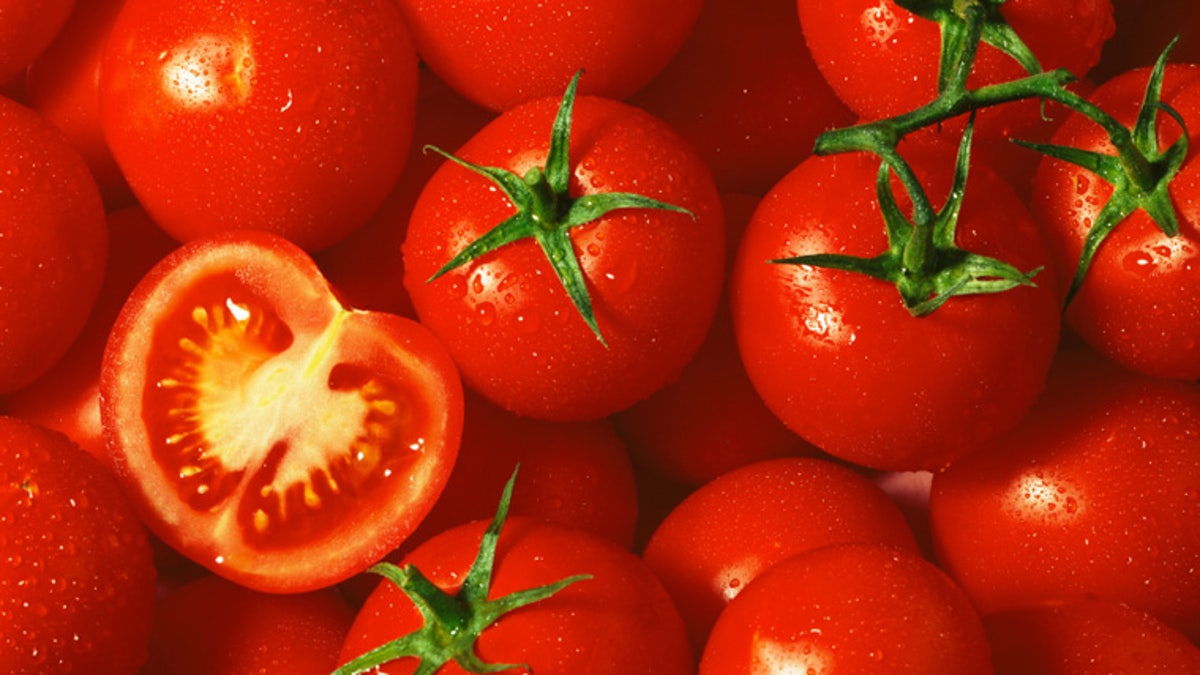
(iStock)
There’s no hiding the fact that diet heavily influences cancer risk, no matter the type of cancer. However, knowing exactly which foods are beneficial and which ones are harmful can help to shape a diet to achieve its maximum health potential. Considering that prostate cancer is the most common cancer in men, AskMen.com has decided to take a long, hard look at anti-prostate cancer foods.
Here are a few...
Tomatoes
Active ingredient: Lycopene, an antioxidant
Why eat them?
Lycopene is an antioxidant compound, a carotenoid, which gives tomatoes their color. It is also one of the most widely studied anti-cancer agents. A 2004 review of all the studies to date on tomatoes found a slight reduction in the risk of developing prostate cancer in men with high blood levels of lycopene or with diets rich in tomatoes.
In 2007, however, the largest study of its kind disputed these results. Fortunately, further studies of greater quality are currently underway that will hopefully put any doubt to rest.
Notwithstanding those results, tomatoes are still chock-full of other beneficial vitamins and antioxidants and, thus, this little red fruit (yes, it’s a fruit) should be a part of any healthy diet.
How should you prepare them?
When it comes to tomatoes, the general rule of thumb is to add heat and fat whenever possible. The more processed the tomatoes and the longer you cook them, the more lycopene is released. Adding fat in the way of oils or meats will also improve lycopene absorption.
Broccoli
Active ingredients: Sulforaphane, among others
Why eat it?
It turns out mom was right: You should really eat your broccoli. In fact, all cruciferous vegetables, like cauliflower, kale and brussels sprouts, appear to offer anti-cancer benefits. Although it’s still not clear which of the many beneficial chemicals or compounds found in broccoli is most responsible for protecting your health, sulforaphane has been the most widely investigated.
Just how does it prevent cancer? Well, sulforaphane might act as an antioxidant itself or it may instead boost detoxifying enzymes in the body. Regardless of how broccoli helps, it’s clear that it is a potent anti-prostate cancer veggie. Some experts even suggest that it’s one of the strongest anti-cancer fighters we have.
How should you prepare it?
When it comes to the method of preparing your broccoli, there is no clear-cut champion, so try to mix things up each time you dine. Eat it raw sometimes, steamed others, and if you boil it, try not to overdo it. Mixing it with other anti-prostate cancer foods such as tomatoes may even enhance anti-cancer effects according to one study done on mice.
_________________________________________________________________________
More from AskMen.com:
Prostate Cancer Treatment And Prevention
4 Fun Ways To Help Prevent Prostate Cancer
_________________________________________________________________________
Soy
Active ingredients: Isoflavones, such as genistein, daidzein and glycitein
Why eat it?
Soy refers to the soybean, a high-protein legume that comes in many consumer-friendly forms including soy milk, tofu and protein powder. Soy is promoted for its protective properties against many cancers, among them prostate cancer. The effects of soy are thought to be due to isoflavones, compounds that are sometimes called plant estrogens because they mimic the actions of human estrogen, but in plants.
A number of laboratory, animal and population-based studies have shown soy to be an anti-prostate cancer food. However, these results still need to be confirmed in clinical trials. Even without those results, simply using soy as a replacement for meat or dairy may be beneficial on its own, since diets high in meats and dairy tend to increase the risk of certain cancers.
How should you prepare it?
The amount of isoflavone varies by type of soy product and there is generally no rule to help you pick one product over another. Until there is, just keep meals varied and opt for soy products instead of meats and dairy from time to time.
Flax
Active ingredients: Lignans, and alpha linolenic acid (an omega-3 fatty acid)
Why eat it?
Flax is an annual plant used in making the fabric known as linen. Although flaxseed is high in omega-3, it is also rich in lignans, a class of phytoestrogen that may act as an antioxidant. Both flaxseed and its oil have been promoted as anti-cancer substances since the early 1950s, but only recently has any solid evidence emerged.
Unfortunately, only a handful of small studies have investigated the link between flax and prostate cancer in humans, but the results all look promising. Of course, further studies will be needed to definitively close the chapter on flax and cancer, but that shouldn’t keep you from getting your flax fix.
How should you prepare it?
As far as versatility is concerned, flaxseed is certainly the most flexible of the anti-prostate cancer foods. Flaxseed is available in flour, meal and seed form and can be found in multigrain breads, cereals, breakfast bars, and even muffins. Flaxseed oil can also be found in pure liquid form or as capsules.
You are what you eat
Rigorous research takes time and money, and unfortunately, one, if not both, may be lacking. There are simply so many foods and supplements available that researching them all is not only impractical, but likely impossible. With that said, the key to preventing prostate cancer via diet is to eat a well-balanced meal, including all of the above foods, along with a hearty serving of other fruits and vegetables. You can dabble in meats and dairy, but if possible, keep your dabbling to a minimum.
Movember, or the month formerly known as November, is when men grow their mustaches for 30 days to raise awareness and funds to help find a cure for prostate and testicular cancer. Sign your mustache-growing team up now or join the AskMen team — 'cause we're about men.







































